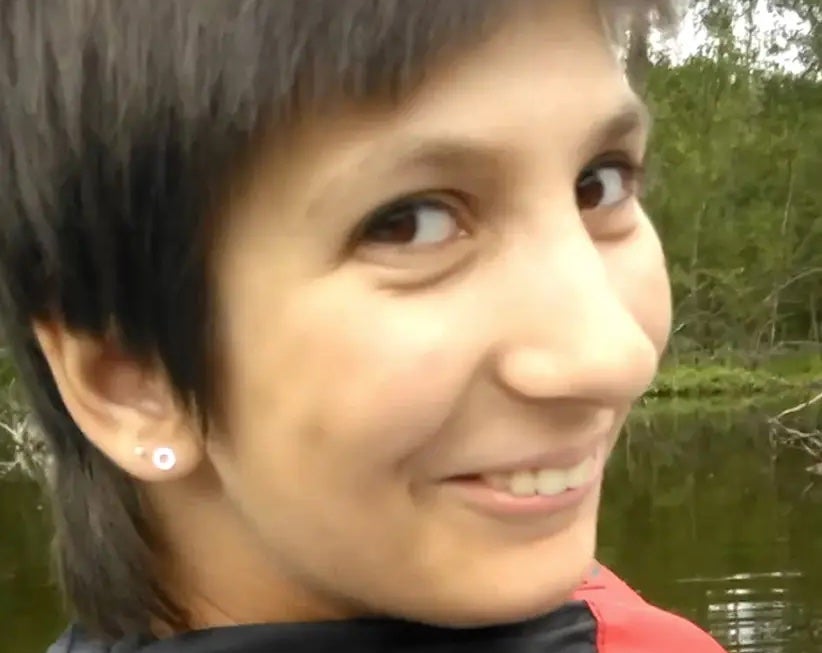School’s failure to monitor internet use contributed to teenage girl’s suicide, coroner rules
Frances-Rose Thomas was able to access material relating to self-harm and suicide for months

Your support helps us to tell the story
From reproductive rights to climate change to Big Tech, The Independent is on the ground when the story is developing. Whether it's investigating the financials of Elon Musk's pro-Trump PAC or producing our latest documentary, 'The A Word', which shines a light on the American women fighting for reproductive rights, we know how important it is to parse out the facts from the messaging.
At such a critical moment in US history, we need reporters on the ground. Your donation allows us to keep sending journalists to speak to both sides of the story.
The Independent is trusted by Americans across the entire political spectrum. And unlike many other quality news outlets, we choose not to lock Americans out of our reporting and analysis with paywalls. We believe quality journalism should be available to everyone, paid for by those who can afford it.
Your support makes all the difference.A school’s failure to sufficiently monitor the internet activity of an autistic teenage girl “contributed” to her suicide, a coroner has concluded.
Frances-Rose Thomas, known as Frankie, was 15 when she took her own life at home in Witley, Surrey, on 25 September 2018.
It happened after she had read a story, about a character who dies by suicide, on an iPad while at her special educational needs (SEN) school.
An investigation after her death into her computer use found she had been able to access material relating to self-harm and suicide over a few months, as there was no internet filter for the device at the Stepping Stones school in Hindhead, the inquest heard.
On the day that she died, she had over two hours’ access to the internet on the iPad.
This is despite the fact a “bespoke education plan” had been put in place at the school – now known as Undershaw – to prevent her from having unfiltered access to the internet.
Reading her conclusion at Woking Coroner’s Court on Wednesday, coroner Karen Henderson said she believed Frankie was influenced by stories she had read online, and described her as a “naive” teenager with “complex needs”.
She told the inquest: “Frances-Rose Thomas had a number of underlying vulnerabilities, including significant childhood trauma, high-functioning autism and impulsivity.
“She died at 6.57pm on September 25 2018 at Royal Surrey County Hospital after being found unresponsive... at her home address at or around 5pm the same day, an hour after she was last known to be alive.
“On the day of her death, Frances had unrestricted access to the internet at school and in the absence of any effective e-security monitoring system and personal supervision, she sought out and read stories about members of her favourite band featuring suicidal acts.
“She left a note declaring an intention to end her life.”
Ms Henderson said she was satisfied that allowing Frankie to have unfiltered access to the internet was an “enormous and systemic failure on the part of the school”.
She also said: “No-one other than Frankie knew she had accessed these websites, the systems in place were inadequate.
“It was essential for the school and her family to have known at the earliest opportunity.
“Frankie clearly and deliberately sought out these sites, however the school’s e-security monitoring systems did not stop this access.”
Ms Henderson called on the Department for Education (DfE) to impose rules every educational establishment must follow.
Frankie’s parents, Judy and Andy Thomas, also said the government should have a stronger stance on ensuring that the safeguarding of pupils from online harms is standardised across all schools.
The couple had regulated Frankie’s access to the internet at home.
They said after the inquest: “Frankie was such a big part of our lives and it was a total privilege to be her parents and we were proud of her.
“She had such potential and we believed in her 100%. She was seriously unique and we miss her terribly and still cannot believe she has gone.
“We were genuinely horrified when we learned of the material Frankie had access to online while at school, where we assumed she would be kept safe.
“We believe that the access Frankie had to harmful material ultimately led to her death.
“We urge all schools, especially those who cater for children with special educational needs, to make sure they have the highest levels of filtering on their equipment.
“This should block access to dangerous material and immediately alert delegated staff to access attempts, who can then follow up with the student concerned and their parents or carers. Pupils should also be supervised when online.”
A government spokesperson said its statutory safeguarding guidance “sets out in detail” how the DfE expects all schools to “protect pupils from potentially harmful online material, such as content on suicide or self-harm”.
If you are experiencing feelings of distress and isolation, or are struggling to cope, The Samaritans offers support; you can speak to someone for free over the phone, in confidence, on 116 123 (UK and ROI), email jo@samaritans.org, or visit the Samaritans website to find details of your nearest branch.
For services local to you, the national mental health database- Hub of Hope - allows you to enter your postcode to search for organisations and charities who offer mental health advice and support in your area.
Join our commenting forum
Join thought-provoking conversations, follow other Independent readers and see their replies
Comments